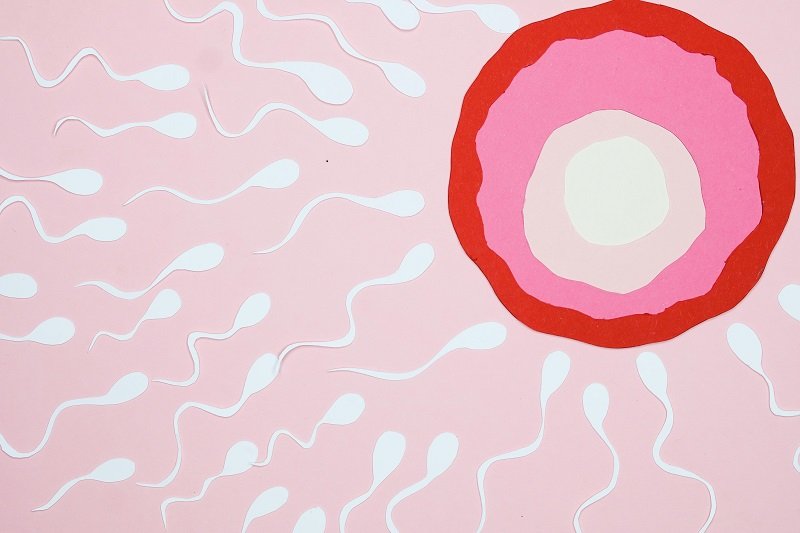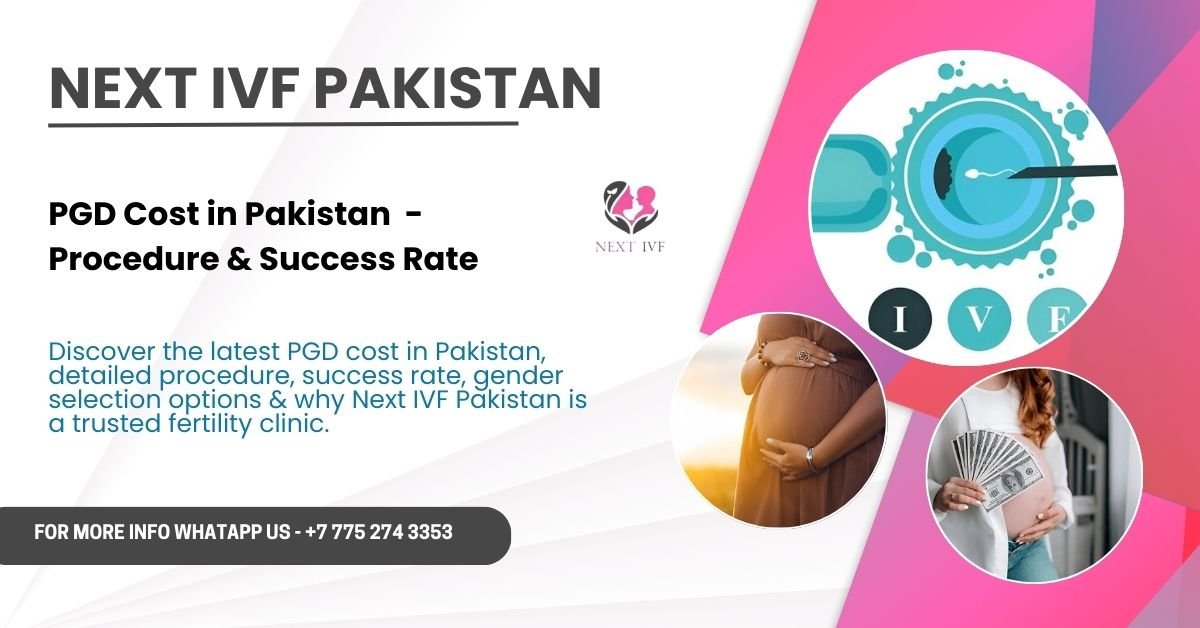PGD Cost in Pakistan
In recent years, Pakistan has seen tremendous growth in the field of assisted reproductive technologies, offering affordable and advanced fertility treatments to both local and international couples. One of the most sought-after procedures today is PGD, or Preimplantation Genetic Diagnosis. This technique allows doctors to screen embryos for genetic disorders before they are implanted into the uterus. It gives hopeful parents the chance to reduce the risk of passing on inherited conditions, leading to healthier pregnancies and improved IVF outcomes.
This article explores everything you need to know about PGD Cost in Pakistan, including how the procedure works, what factors influence pricing, and what you can expect during the treatment process. We’ll also look at why Pakistan is becoming a preferred destination for PGD and IVF procedures. Whether you’re considering PGD for medical reasons or simply want to understand the financial commitment, this guide will help you make an informed decision. Let’s dive in and learn more about the cost, benefits, and process of PGD in Pakistan.
What is PGD?

Preimplantation Genetic Diagnosis (PGD) is a medical procedure used alongside IVF to examine embryos for genetic abnormalities before they are transferred to the uterus. This process ensures that only healthy embryos, free from specific genetic conditions, are selected for implantation. It is especially recommended for couples who have a history of genetic diseases, recurrent miscarriages, or advanced maternal age.
Here’s how PGD works: After eggs are fertilized in the lab, they grow into embryos. On the third or fifth day of development, a few cells are carefully extracted from each embryo. These cells are tested for specific genetic markers or chromosomal abnormalities. Based on the test results, only embryos that are healthy and free of the targeted genetic issues are chosen for transfer.
PGD significantly improves the chances of a successful pregnancy by preventing the implantation of embryos with known genetic issues. It’s different from PGS (Preimplantation Genetic Screening), which checks for general chromosomal health, whereas PGD is targeted towards identifying particular diseases like cystic fibrosis, thalassemia, or Huntington’s disease.
In Pakistan, the availability and affordability of PGD have made it a viable option for many couples who wish to ensure a healthy pregnancy. The PGD Cost in Pakistan is considerably lower than in Western countries, making it a practical choice without compromising on quality or success rates.
Step-by-Step PGD Procedure in Pakistan (with Cost Estimates)
Going through PGD can feel overwhelming at first, but understanding the steps and what to expect cost-wise can make your journey smoother. Here’s a simplified and patient-friendly guide to how PGD works, along with an estimated cost at each stage.
- Initial Consultation & Tests
Your journey begins with a consultation with a fertility specialist. The doctor reviews your medical history and recommends diagnostic tests for both partners. If a known genetic disorder exists or if you’ve had repeated miscarriages, PGD is suggested. - Ovarian Stimulation
The woman receives hormone injections for 10–12 days to stimulate the ovaries to produce multiple eggs. This phase includes regular ultrasounds and blood tests to track follicle development. - Egg Retrieval
Once the follicles are mature, eggs are collected through a short procedure performed under mild sedation. It’s a safe, painless process done at the clinic. - Fertilization (IVF or ICSI)
The retrieved eggs are fertilized with sperm in a lab. Most clinics use ICSI (Intracytoplasmic Sperm Injection), especially if there are male infertility factors. - Embryo Biopsy
On the 3rd or 5th day of embryo development, specialists remove a few cells from each embryo. This biopsy is safe and doesn’t harm the embryo. These cells are sent for genetic testing. - Genetic Testing (PGD/PGS)
The lab examines the biopsied cells for specific genetic or chromosomal abnormalities. Only healthy embryos are selected. - Embryo Transfer
One or two healthy embryos are selected and gently transferred into the uterus. This is a quick and simple procedure with no anesthesia needed. - Pregnancy Test & Follow-up
Around 10–14 days after transfer, a blood test confirms pregnancy. If successful, early pregnancy monitoring begins.
The following table helps you to understand the PGD procedure and it’s cost:
| Procedure Step | PGD Cost in Pakistan (PKR) |
| Initial Consultation & Tests | 15,000 – 30,000 |
| Ovarian Stimulation (Medications & Monitoring) | 100,000 – 150,000 |
| Egg Retrieval Procedure | 50,000 – 70,000 |
| Fertilization (IVF/ICSI) | 120,000 – 180,000 |
| Embryo Biopsy for PGD | 100,000 – 150,000 |
| Genetic Testing (PGD/PGS) | 180,000 – 250,000 |
| Embryo Transfer | 40,000 – 60,000 |
| Pregnancy Test & Follow-up | 10,000 – 20,000 |
Why Choose Pakistan for PGD?
Pakistan is increasingly becoming a preferred destination for PGD and IVF treatments due to a unique combination of benefits:
- Affordability: The biggest reason why couples from around the world choose Pakistan is the affordable PGD cost in Pakistan. You can receive world-class fertility care at a fraction of the price you would pay in countries like the US or the UK.
- Internationally Trained Specialists: Many fertility doctors in Pakistan have received training or certifications from abroad. This means they follow global standards while offering personalized care.
- Modern Infrastructure: Fertility clinics in cities like Kathmandu, Lalitpur, and Pokhara are equipped with cutting-edge labs, advanced genetic testing technologies, and high success rates.
- Shorter Waiting Times: Compared to clinics in developed countries that have long waiting lists, Pakistan clinics often offer quicker scheduling and faster access to PGD services.
- Support for International Patients: Top fertility clinics in Pakistan provide assistance with travel, visa, accommodation, translation services, and remote consultations.
- Cultural Sensitivity and Hospitality: Pakistan is known for its warm hospitality, making patients feel welcome, respected, and emotionally supported throughout their fertility journey.
All these factors combined make Pakistan not just an affordable option, but also a caring and high-quality choice for couples seeking PGD treatment.
Success Rate of PGD in Pakistan

The success rate of PGD largely depends on the woman’s age, embryo quality, and the lab’s experience. In Pakistan, good fertility clinics using PGD report pregnancy success rates of 60% to 75% per embryo transfer, which is on par with global standards.
Why trust Next IVF Pakistan?

Struggling with infertility can be emotionally and physically challenging, but you don’t have to face it alone. At Next IVF Pakistan, we combine advanced science with genuine care and compassion to help you realize your dream of becoming a mom and dad.
Our centre is dedicated to supporting every couple with personalized fertility solutions tailored to your unique needs. We understand how deeply you desire to start or expand your family, and that’s why our expert team, including IVF specialists, gynecologists, embryologists, and supportive staff, stands by your side every step of the way.
Why choose Next IVF Pakistan as your trusted fertility partner?
- Comprehensive treatments: From IVF, IUI, and frozen embryo transfer to ovum and semen donation, laparoscopy, ICSI, PGD, and male infertility care, we offer the full spectrum of cutting-edge fertility services.
- High success rates: Our proven protocols and experienced specialists maximise your chances of success.
- Affordable care: Quality fertility treatment should be accessible to all. We provide world-class solutions at pocket-friendly prices without compromising on care or outcomes.
Don’t wait any longer to begin your journey toward parenthood. Contact Next IVF Pakistan today at +91 7827636596 or email us at info@nextivf.com. Together, we’ll make your dream of having a family a beautiful reality.
Conclusion
Understanding the PGD Cost in Pakistan is essential for couples looking to prevent genetic conditions and build a healthy family. Pakistan offers this advanced service at a more affordable rate than many other countries, making it a smart choice for both local and international patients. The cost may vary based on the type of test, clinic, location, and number of embryos tested, but the value lies in the peace of mind it provides.
With experienced fertility specialists, modern labs, and patient-centered care, Pakistan is growing as a trusted destination for Preimplantation Genetic Diagnosis. Couples now have access to precise, early detection of inherited conditions, combined with IVF treatment, under one roof. Whether you are just starting your fertility journey or have a known genetic concern, PGD offers a safer path to parenthood. Always consult with a specialist to understand your options and get a personalized estimate of your PGD Cost in Pakistan.
FAQs (Frequently Asked Questions)
1. What is PGD, and how is it different from IVF?
PGD (Preimplantation Genetic Diagnosis) is performed with IVF. It allows testing of embryos for genetic or chromosomal abnormalities before implantation, helping avoid inherited conditions.
2. Who should consider PGD?
Couples with a history of genetic disorders, recurrent miscarriages, failed IVF cycles, or women over 35 may benefit from PGD.
3. Is PGD safe for the embryo?
Yes, PGD is performed by removing a few cells from the embryo without harming it. It’s a safe and standard practice in fertility labs.
4. How long does the PGD process take?
The entire IVF+PGD process typically takes about 3 to 4 weeks, including consultation, ovarian stimulation, embryo testing, and embryo transfer.
5. Can PGD determine the baby’s gender?
Yes, PGD can detect the embryo’s gender, but it is typically used only for medical reasons unless otherwise legally permitted in your region.
6. Does PGD guarantee a healthy baby?
PGD significantly reduces the risk of genetic disorders but doesn’t guarantee a 100% healthy baby. It helps select embryos with the best potential for healthy development.
Read Also:

